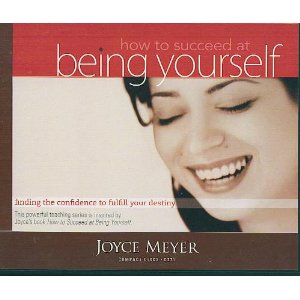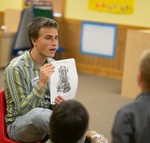Feed The Woman Meat
When I became a Christian at the ripe age of 16, I was immediately introduced to the extraordinary treasure trove of riches to be found amongst the pages of some of the greatest Christian writers, theologians, apologists, philosophers and thinkers of our time.
For hours at a time it would not be unusual to find me hunched over a book somewhere in a secluded corner of the house, brow puckered and perplexed, mind intensely focused, full of deep reflection and forced concentration.
At that stage of my tender Christian life, I doubt I understood much of what I read. Never-the-less, I eagerly attempted to devour, savor and absorb the profound and life changing wisdom offered up to me daily by likes of Warfield, Edwards, Pink, Packer, Stott, McDowell, Bonhoeffer, Schaeffer, Spurgeon and J.C Ryle.
But as I moved on into adulthood and the circles of influence shifted, so did the books offered before me to read. Not so much in the intellectually vibrant university or working community I moved amongst, but more the Christian women’s groups I became part of.
Here I found the emphasis shifted. Instead of the meaty theological ideas I’d been used to reading, and the persistent and passionate clarion call to, ‘go ye into the world and tell of the good news of Christ’; more often than not, much of the material offered to consume was light on scripture, tentative on the call to engage in evangelism and heavy on ‘felt needs’, self-help and subjective Christian opinion.
As I’ve grown and moved about in ministry circles, I’ve found not that much has really changed. In fact, as the Christian writing world has exploded, and the market saturated with blogs, web sites, podcasts and books readily available on CD & DVD, so have the materials specifically aimed and targeted at Christian women.
Sadly, so much of the material in the ‘Christian women’s market’, appear to only give lip service to solid Biblical teaching. They often lack any clear expression of biblical theology, and offer very little in terms of real theological engagement on their topic of choice.
As a result, some of the books, blogs and Christian women’s websites currently on offer do more to foster biblical ignorance than build theological depth. They often share more from experience and anecdotal stories to underpin teaching than provide any serious examination of God’s truth. Rarely is there a clear call or emphasis on costly discipleship, ready engagement in Christian witness or training and encouragement in disciple-making.
Without scriptural depth and gutsy theology, women are given no solid foundation by which they can understand and interpret God’s Word correctly on any matter at hand. Nor are they given any appropriate theological tools with which they can work out an accurate expression of true biblical womanhood and biblical discipleship.
A friend overseas emailed recently with just such an example. Seeking advice over a popular Christian women’s book being studied in her women’s group she had this to say…
 …”it’s the most dangerous form of teaching isn’t it, because it has some truth in it so it can lead us astray more easily, just slightly off the gospel – without seeming to be wrong.
…”it’s the most dangerous form of teaching isn’t it, because it has some truth in it so it can lead us astray more easily, just slightly off the gospel – without seeming to be wrong.
That is what I have found paging through this book with the horrendous title, ‘How To Succeed At Being Yourself’ – just when I was thinking, ‘this is bad’ she says something good and then I think, ‘oh maybe it’s not that bad’ – and so makes being discerning harder work”
In books such as the one mentioned, so much of what’s said is merely human wisdom wrapped in biblical language. And women can be drawn in for the same reason we seem to love most things, because it so often speaks into our ‘felt needs’ rather than our true ‘spiritual need’.
And this is where, if we’re not careful, not discerning, we become vulnerable to swallowing poor teaching; we quickly become taken in by ’emotion over content’. What we might like to hear, rather than what we might need to hear. This is never good!
Books and bible study materials such as these rob our women of what it is they really need – God’s perspective on them, others, His world – from His Word, rightly taught.
Perhaps never more has Christian wisdom, prudence and discernment been needed before we purchase a book or read a blog with the words ‘women’, ‘for women’ or ‘Christian womanhood’ in the title.
But not to despair, help is at hand!
All poised to embark on writing a ‘Christian Women’s Guide to Buying a Book’ I fell upon a helpful guide in ‘Treasures of Encouragement’, which had some useful tips.
I’ve summarized the guide below for reflective thought and consideration. In assessing Christian material for reading and study consider…
- Is Scripture at its core?
Is scripture used to explain and support scripture? Is it used in its right context?
Is scripture put on the same level as experience? Is experience tested against scripture?
Is the bible the clear governing authority or merely the writer’s opinion?
- Does it teach sound doctrine?
Test its content against the 5 ‘Solas’ of the Reformation, does its content compromise these essentials of the Christian faith – scripture alone, grace alone, through faith alone, in Christ alone and for the glory of God alone.
Does it contradict key doctrines of the Christian faith e.g. resurrection, atonement, creation, fall, sin, the need for repentance?
- What do you know about the author?
What do you know about them? What is their theological background and persuasion?
What else have they written? Who has recommended them?
Who does the author quote as back up to their position?
Do they quote trusted theologians?
- Is the book God-centered or Man-centered?
Is it about growing in Christ likeness, conforming to the image of God, or primarily about bettering ourselves and seeking self-fulfillment and personal happiness?
- Lastly, is it teachable and useful?
If so, how and in what context?
If used by groups – can the leaders easily teach it?
Does it delve into issues the leaders are prepared and able to address?
Is the subject matter appropriate and relevant? Is there a workbook?
What will the book equip your women to know and do?
I’ve added 6th suggestion…
- What does it say about women’s roles and biblical womanhood and disciple making?
Do they teach primarily from their own experience or from the scriptures?
Is it anecdotally based or bible based?
Does what they teach about womanhood fit rightly with what scripture teaches?
Does it foster a life of discipleship and disciple making?
If you’re a Christian woman reading this, ask yourself
* What is my spiritual study diet made up of?
* What are my women’s groups reading, studying, learning from, being shaped by?
* Is our study diet merely made up of the ‘milk of infants not yet weaned’, or the solid ‘meat of God’s Word’?
The book of Hebrews reminds us what regular, thoroughgoing examination and study of the scriptures does for the ongoing spiritual life of a believer. We not only become “skilled in the teachings of righteousness”, but our appetite actually becomes whetted and trained for more and more solid spiritual food. Isn’t this what we really want as Christian women?
If we want women to become ‘wise in the Word’, to be discerning of heart and mind, to faithfully and steadfastly walk the way of biblically based womanhood, discipleship and disciple-making, then we need to begin to weed out the ‘watered down milk’ so often offered up in our bookshops, bible studies and reading libraries, and really start to ‘feed the woman meat’!
“Anyone who lives on milk, being still an infant,
is not acquainted with the teaching about righteousness.
But solid food is for the mature,
who by constant use have trained themselves
to distinguish good from evil”
Heb 5:13-14

* This blog piece was written by Sarie King, you can find her blog here at www.complementarityandculture.com







